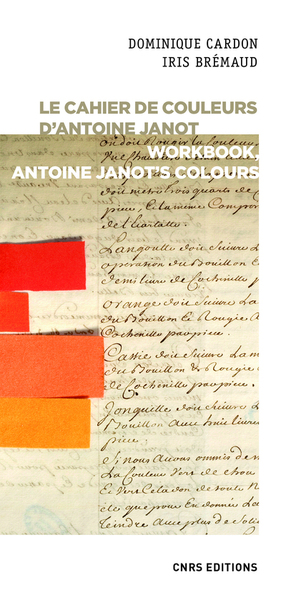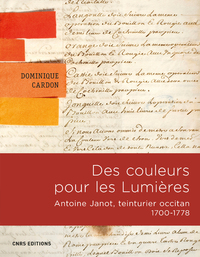Nous utilisons des cookies pour améliorer votre expérience. Pour nous conformer à la nouvelle directive sur la vie privée, nous devons demander votre consentement à l’utilisation de ces cookies. En savoir plus.
Le cahier de couleurs d'Antoine Janot
EAN : 9782271132932
Paru le : 20 août 2020
-
 Livraison gratuite
Livraison gratuite
en France sans minimum
de commande -
 Manquants maintenus
Manquants maintenus
en commande
automatiquement -
 Un interlocuteur
Un interlocuteur
unique pour toutes
vos commandes -
 Toutes les licences
Toutes les licences
numériques du marché
au tarif éditeur -
 Assistance téléphonique
Assistance téléphonique
personalisée sur le
numérique -
 Service client
Service client
Du Lundi au vendredi
de 9h à 18h
- EAN13 : 9782271132932
- Réf. éditeur : 734320
- Editeur : CNRS Editions
- Date Parution : 20 août 2020
- Disponibilite : Manque sans date
- Barème de remise : NS
- Nombre de pages : 127
- Format : H:211 mm L:102 mm E:12 mm
- Poids : 190gr
-
Résumé :
Bleu mignon, fleur de coing, agriotte, langouste... Des couleurs surgies du passé, un trésor d'inspiration.
Ce cahier bilingue français-anglais donne la parole aux échantillons de teinture d'Antoine Janot, maître-teinturier languedocien de la première moitié du xviiie siècle, aux couleurs appréciées jusqu'aux confins de l'Orient.
Après une brève présentation du teinturier et de son œuvre, ce cahier livre les clés des couleurs de 67 de ses échantillons de fin drap de laine : nom et photo de chaque nuance, description du procédé permettant de l'obtenir et – nouvel apport à l'histoire des noms de couleurs – ses coordonnées colorimétriques dans l'espace chromatique CIELAB. Il devient alors possible de vérifier l'exactitude des essais de reproduction de ces couleurs et de s'en inspirer pour concevoir les couleurs de demain.
Celestial blue, quince flower, sour cherry, lobster red... How can we not be inspired by these colour names from the past?
This bilingual Workbook in English and French presents the colour gamut of Antoine Janot, a master-dyer from Languedoc in the south of France during the 18th century whose colours were highly prized as far away as the Levant.
After a brief introduction of the master-dyer and his work, the authors deliver the key elements defining the colours of 67 swatches of fine wool broadcloth: the name and photo of each shade; a schematic description of the process by which it has been obtained; and (in a new approach to the history of colour names in textiles) its chromatic specification in the CIELAB colour space. This makes it possible to assess the accuracy of attempts to reproduce these colours and use them as sources of inspiration for the future.
Historian and archaeologist, Dr Dominique Cardon explores the history of textile techniques and natural dyeing throughout the world. She is Emerita Director of Research at CNRS (French National Centre of Scientific Research), research unit CIHAM. She has been awarded the Silver Medal of CNRS in 2011.
Dr Iris Brémaud, Research Fellow at CNRS (research unit LMGC), is a researcher in wood science, examining the relationships between craft knowledge and plant resources. She applies colorimetry to this research on historical colours.




